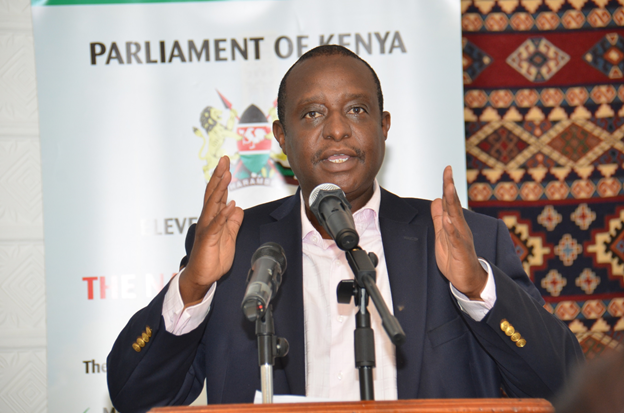The World Bank has poked holes into Kenya’s methods of managing its public debt especially with the 20% reduction of development expenditure in the financial year 2017/2018.
In its October issue of the Kenya Economic Update 2018, the international financial institution attributed the development expenditure cuts to the government’s need to slow down on spending to tame the ballooning debt which currently stands at 5.1 trillion.
The World Bank faults the move saying it hindered economic growth.
Also questioned are the government’s budget priorities saying that key sectors with the potential of boosting the country’s economy are grossly being underfunded.
“It would be equally important for there to be improvement in efficiency of spending. For instance, in the agriculture sector, a number of studies show that the lack of extension services is undermining productivity in the sector. However, the budget for agriculture continues to significantly underfund extension services,” reads the update.
The global capital projects lender tips the country’s Gross Domestic Product (GDP) to grow from 4.9% in 2017 to 5.7% in 2018 and gradually to 6.0 percent by 2020 attributable to easing of political uncertainty, recovery of the agricultural sector and domestic demand.
However it is not looking all rosy for the country domestically as the bank warns that subdued growth of the private sector, recurrence of adverse drought shocks and deviations in expenditure by the government could dampen Kenya’s growth prospects.
“On the external front, an unanticipated spike in oil prices, uncertainty and rising trade tensions, and unanticipated tightening of global financial market conditions may result in reversal of capital flows,” reads part of the update.
READ: UHURU PRESIDENCY WILL SINK KENYA INTO SH7.1 TRILLION DEBT
The World Bank further says that for the government to achieve its Big Four Agenda, economic reforms are required including tweaking the public debt management system and safeguarding of the country’s macro-economic stability.
Also proposed by The World Bank is the repealing of the law capping interest rates which the bank says has led to slow credit growth rates hence starving the private sector much needed access to credit.
“Private sector credit growth has risen from 2% in March to 4.3% in August 2018, signifying a slow but steady pick-up. Nonetheless, even though picking up, private sector credit growth remains well below its historical average of about 19 percent,” further reads the update.
SEE ALSO: WHY GOOGLE IS SHUTTING DOWN GOOGLE PLUS
World Bank is also advising the government to lay special emphasis on Micro, Small, Medium Enterprises (MSMEs) which are key economic drivers in other countries.












6 Comments